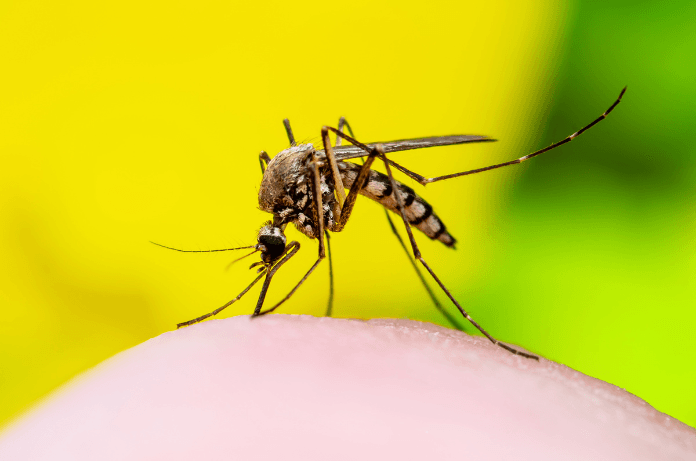Malaria has long been one of the deadliest diseases for children under five, particularly in Africa. While existing vaccines targeting the liver stage of the parasite have saved countless lives, there’s still a critical gap: what happens when these vaccines fail, and the parasite enters the bloodstream? A promising answer has emerged with the latest RH5.1/Matrix-M™ vaccine. It is the first to target the blood-stage of malaria effectively.
Recent clinical trials conducted by team researchers at the University of Oxford in collaboration with the Clinical Research Unit of Nanoro (CRUN) at Burkina Faso’s Research Institute of Health Sciences (IRSS), the London School of Hygiene and Tropical Medicine (LSHTM), National Institute of Health (NIH) in the USA, the Serum Institute of India Pvt. Ltd and other global partners and institutions. The study has shown that the RH5.1/Matrix-M™ vaccine could revolutionize malaria prevention in the blood-stage.
Tackling the Blood-Stage of Malaria
Malaria, caused by Plasmodium falciparum, begins in the liver before advancing to the blood. It’s in this blood-stage that symptoms like fever, chills, and potentially life-threatening complications such as severe anemia and organ failure develop. The RH5.1/Matrix-M™ vaccine is designed to prevent this by stopping the parasite from effectively infecting red blood cells.
Unlike the existing RTS,S/AS01, and R21/Matrix-M™ vaccines, which focus on the liver stage, RH5.1/Matrix-M™ provides a second line of defense. As Professor Angela Minassian from the University of Oxford explains, “If the liver-stage vaccines fail and parasites enter the bloodstream, disease develops. Adding RH5.1/Matrix-M™ to these vaccines can achieve even higher levels of protection.”
Promising Results from Burkina Faso
The phase 2b trial, conducted in Nanoro, Burkina Faso, enrolled over 360 children aged 5 to 17 months in 2023. Participants were randomly divided into two groups: one receiving three doses of RH5.1/Matrix-M™, and the other a control rabies vaccine. Importantly, the study followed a double-blind method, meaning neither the participants, their families, nor the researchers knew who received which vaccine, ensuring unbiased results.
The vaccine demonstrated no safety concerns and was well-tolerated among the children. Those who received three doses at 0, 1, and 5 months exhibited higher efficacy than those vaccinated at 0, 1, and 2 months. The results were compelling:
- 55% effectiveness in preventing clinical malaria over six months.
- Over 80% efficacy in preventing severe cases, marked by very high parasite levels in the blood.
These outcomes are particularly significant in the fight against severe malaria, which frequently leads to developmental challenges and even death. As Professor Halidou Tinto of the IRSS noted, “Frequent malaria infections impair a child’s growth and development. Protecting against the blood-stage ensures healthier childhoods with better educational and developmental outcomes.”
A Collaborative Global Effort
The development of RH5.1/Matrix-M™ is the result of a massive collaborative effort. Researchers from Oxford worked alongside experts in Burkina Faso and institutions like LSHTM, the US’s National Institutes of Health (NIH), and private-sector partners including the Serum Institute of India and Novavax. The vaccine uses Novavax’s saponin-based Matrix-M™ adjuvant, a component known for enhancing immune response and increasing antibody durability.
Funding for the trial came from multiple global organizations, including:
- The European and Developing Countries Clinical Trials Partnership
- The UK Medical Research Council
- The National Institute for Health and Care Research Oxford Biomedical Research Centre
- The Wellcome Trust
- The US Agency for International Development
The Road Ahead: Combining Vaccines for Maximum Impact
The RH5.1/Matrix-M™ vaccine is poised to complement existing liver-stage vaccines like RTS,S/AS01, and R21/Matrix-M™, creating a holistic approach to malaria prevention. By addressing both the liver and blood stages, this combined strategy could offer unparalleled protection.

Professor Simon Draper, Professor of Vaccinology and Translational Medicine in the Departments of Paediatrics and Biochemistry, the Kavli Institute of Nanoscience and the inventor of the RH5.1/Matrix-M™ vaccine, emphasized the significance of these findings: “The development of an effective blood-stage malaria vaccine has been an exceptionally tough scientific challenge. These results represent a major milestone and open doors to testing combined vaccines that could offer very high-level efficacy against malaria in young children.”
Why This Matters
Malaria continues to kill hundreds of thousands of children annually, with many more suffering lifelong effects due to repeated infections. The RH5.1/Matrix-M™ vaccine offers a beacon of hope by addressing a previously unmet need in malaria prevention.
Professor Minassian summarizes the potential impact: “Our goal is to significantly reduce severe cases and deaths. This study provides the first real-world data showing how targeting the blood-stage can reduce the level of parasites in the blood, paving the way for a future where malaria is no longer a leading cause of child mortality.”
As researchers plan further trials to assess long-term safety and efficacy, the RH5.1/Matrix-M™ vaccine stands as a testament to what global collaboration and scientific persistence can achieve. For millions of children at risk, this is a step toward a healthier, malaria-free future.

